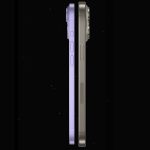- At-home DNA kits give insight into your ancestry and health information and can help connect you with family.
- We spoke with six genetics experts on what to look for in an at-home DNA kit.
- Our top pick, AncestryDNA, has the largest database and gives a detailed ethnicity report for $100.
It’s quite amazing that with a simple saliva sample or cheek swab, we can learn so much about our ancestry, family connections, and inherited health markers – all thanks to our DNA. These at-home DNA test kits provide us with all kinds of information we might not be able to learn otherwise.
“A DNA test kit can tell us our medical risks, to an extent, and who we are connected to right now in our living family,” Brianne Kirkpatrick, MS, LCGC, a genetic counselor, ancestry expert for the National Society of Genetic Counselors, and founder of Watershed DNA, told Insider. “They can also tell us about the grandparents and great grandparents we’d never have a chance to learn about otherwise. And they can be the entryway into a genealogy hobby.”
Buying a DNA test comes with a lot of questions, which is why we talked with six experts about what makes for a quality test, who should and shouldn’t take one, and how secure your genetic information is with these companies. We’ve also included answers to a variety of other FAQs based on the information shared by these experts.
Here are the best DNA test kits:
- Best DNA test kit overall:
- Best DNA test kit with health data: 23andMe Health + Ancestry Service
- Best budget DNA test kit:
- Best DNA test kit for serious genealogists:
AncestryDNA
The gets you access to the largest customer database, which means more detailed results and more family matches.
Pros: Largest database, built-in DNA-matching and messaging, widely available
Cons: No health testing (which experts say isn’t necessarily a bad thing), historical records cost extra
If your goal is to build your tree and meet your cousins, you want the site that has the most people and, therefore, most matches, Mica Anders, a professional genealogist who specializes in genetic genealogy, told Insider.
has the largest database with nearly 20 million people, which is roughly 8 million more than the next closest, 23andMe. You can opt-in to family connections and even have the ability to message potential matches. Anders did point out that people on Ancestry don’t check their messages as often as other sites geared toward more serious genealogists, like FamilyTree DNA.
The company also offers a service ($25/mo and up) which grants access to a catalog of historical records like birth, death, and marriage certificates, which can be used to build your family tree.
After submitting a saliva sample to Ancestry, you’ll get a breakdown of your ethnicity estimates, ancestry matches with specific countries and regions, a map of the potential migration patterns of your ancestors, and family connections to those who match your DNA. You can even add a traits-testing service for an additional cost to find out about personal traits, such as how likely you are to have freckles or a distaste for cilantro.
Ancestry continues to update its ethnicity estimates and family connections based on new customer data, so you’ll keep getting up-to-date information as its database grows. The company also allows users to download their raw genetic data, which can be uploaded to other sites for analysis.
One of the downsides of Ancestry is that it doesn’t offer specific health information — a service it discontinued in January of 2021. But since genetic counselors recommend consulting with an expert before testing your DNA for health information, and most people use these tests for genealogical purposes, still takes our top spot.
Plus, at $99 (and often less when on promotion), this test excels in its genealogical offerings while leaving room in your wallet to explore DNA health testing with a qualified expert, if that’s what you choose to do.
The best DNA test kit for health data
Amazon
If you want a DNA kit for both preliminary health information and a deeper look into your ancestry, the 23andMe Health + Ancestry Service is your best bet.
Pros: Second largest database, some of the health tests are FDA-approved, identifies haplogroups
Cons: Higher price due to health testing, health testing may bring up sensitive information
At $199, 23andMe Health + Ancestry Service is the priciest kit on our list but you’ll get over 40 carrier status reports (which include information about whether you carry gene mutations for various inherited diseases) as well as reports on more than 10 health dispositions. This helps provide insight into your genetic risk for diseases like type 2 diabetes and Parkinson’s disease.
While these reports can be interesting and enlightening, it’s important to remember a positive result doesn’t mean you’ll definitely get the disease, and a negative result doesn’t mean you won’t.
23andMe’s ancestry results provide information about your ethnicity estimate breakdown, an interactive map of the world showing where your ancestors came from and potential migration paths, and haplogroups, which look at the deep ancestry on your mother’s or father’s side of the family.
Female testers will only be able to see their maternal haplogroup, but male testers can get information on their paternal haplogroup because this test is done on the Y chromosome (which only genetic males have).
This test also includes trait information from your DNA, such as your chances of having a cleft chin, dimples, and dandruff. One aspect of the test that’s particularly interesting is that it also provides a report on how much DNA is inherited from our Neanderthal ancestors.
Lastly, 23andMe has a robust platform for making family connections with your DNA matches if you opt-in. You can send messages through the platform and can even see a map of where your potential family matches are located. And with more than 12 million people in their database, the chances of finding distant (or not-so-distant) relatives could be high.
The best budget DNA test kit
MyHeritage
The only costs $79 and provides most of the same information as other higher-priced ancestry tests.
Pros: Great price, cheek swab, focus on ethnicity estimates, allows you to upload external results, database of genealogical documents
Cons: Smaller DNA test database, no health information
was launched in 2016, so its database, at approximately 4.5 million DNA samples, isn’t as big as the older brands. However, MyHeritage allows users to upload their raw genetic data from other sites, so even though its own sample pool is smaller, its database is quite large and you’re still likely to find family matches on the site.
What’s more, if you believe you’re of European ancestry, might be a better pick than others as it has more customers in Europe.
MyHeritage has been used as a genealogy tool long before it started offering its DNA test. Because of that, the site also has an incredible database of genealogical documents like birth, death, and marriage certificates. Access requires a subscription, but you can also integrate your DNA results with its historical database and family tree-building tool.
For $79 (and often promoted at lower prices), it has most of the same offerings as bigger names: There’s a built-in platform for connecting with new DNA family matches and a detailed ethnicity estimate breakdown. Unlike the Ancestry and 23andMe tests, uses a cheek swab to collect DNA, which some might find easier than having to collect their spit in a tube.
This test doesn’t provide health or trait information, so it’s a good fit especially for those who only want to focus on their ancestry.
The best DNA test kit for serious genealogists
FamilyTreeDNA
If you’ve already taken an autosomal DNA test like the above, and provide deeper insight on your maternal and paternal lines, ideal for those looking to dig into their ancestry and build out family trees.
Pros: More detailed information on maternal and paternal lines, more engaged user base
Cons: Pricier than other tests, not a starting point for DNA testing
Most of the ancestry DNA test kits on the market are autosomal DNA tests, which means any sex can take it to learn both sides of their family tree, Adrienne Abiodun, a professional genealogist with LegacyTree Genealogists told Insider.
But FamilyTreeDNA offers two separate, more specific tests: Mitochondrial DNA (mtDNA) testing which focuses on your maternal line, answering the question, ‘who was my mother’s mother’s mother’s mother?; or, Y-DNA testing, which only biological men with their Y chromosome can use to find information about their direct paternal line.
These types of tests are best suited to those who have already taken autosomal DNA tests (like any of the above) and are looking for deeper information on their lineage. They’re also a good fit for someone who only wants information about their maternal or paternal line — for example, a biological male who never knew their father and wants more information about their paternal line only.
FamilyTreeDNA is a cheek swab test and allows users to upload their raw data from other test sites to get more matches — making it ideal if you’re wanting to connect with others.
“FamilyTreeDNA has a lot more serious genealogists on it, so sometimes you’ll have a better chance of getting responses from people on there,” Mica Anders said.
The paternal ancestry test starts at $119 while the maternal ancestry test is $159. For what it’s worth, FamilyTreeDNA does offer an autosomal DNA test but both Anders and Abiodun said they usually advise clients to upload their autosomal data from other testing companies, then focus on FamilyTreeDNA’s more specialized offerings as applicable.
Paternal Y-DNA Test
Maternal mtDNA Test
What else we considered
There are quite a few niche DNA test kits available, particularly for those interested in genealogy. The experts we spoke with highly recommend taking one of the larger database brands above and, once you have confirmation of where your lineage comes from, consider a more niche test.
Two tests that experts we interviewed for this article highlighted are:
- African Ancestry (from $299): This test is for those who can trace their ancestry back to Africa and want more details on their maternal and paternal lines in that region. In most cases, you’ll want to do another DNA test kit first to check whether this test makes sense for you, according to Abiodun, which is why it’s not included in the main test ranking.
- LivingDNA ($79): LivingDNA is a smaller testing company but includes mtDNA and Y-DNA testing in its standard offering. Primarily, experts interviewed for this article use it for people with ancestry in Great Britain, Wales, and Ireland, as they have a large representation of reference samples from this population.
How we evaluated
We evaluated each test based on the following criteria:
Reference database size: The bigger, the better.
Price: We looked at what information you get, and the quality of the information you get, relative to the price of the test.
Depth and detail of data provided: We considered how well each test covered deep ancestry information (your ancestry going back hundreds and thousands of years) as well as genetic genealogy, which covers your more recent ancestry.
Ease of family matching: We considered how easy it is to connect with any family matches you establish, and whether or not you have to pay extra to do so. “Some sites have easier communication than others,” Anders said.
Genealogist recommendations: We spoke with two professional genealogists who walked us through how they choose which tests they use for their clients.
What to look for in a DNA test kit
In addition to the criteria above (Reference database size, price, depth and detail provided, and ease of family matching), people looking to purchase a DNA test kit should consider:
Whether you want ancestry, health, and/or traits information: There are pros and cons to taking a test that includes all three types of genetic information, and some people may prefer not to know whether or not they have an increased risk of disease, for example. Others might want as much information as possible about their health, family roots, and genetic traits.
Access to raw data: If you plan to upload your genetic data to another site to maximize family matches and build your family tree, you’ll want to check whether or not you can download your raw data after getting your test results.
Subscription fees: Some DNA test kit companies require additional subscription fees to unlock certain features, particularly around health reports and historical records used for genealogy. Before you buy a test kit, check what’s included in the test price and whether or not you’ll need any additional subscriptions to use the test as planned.
The test company’s privacy policy: Experts agree that reading a company’s privacy policy in full is an essential step for all consumers before purchasing an at-home DNA test kit. It’s important to be sure you’re comfortable with how your data will be stored and used, and there is variation among companies on this. For instance, some test companies keep physical DNA samples unless you tell them to destroy them, while others will destroy them automatically.
Usually, the reason behind keeping your DNA sample on hand is so that your DNA can be retested if more advanced testing methods become available in the future.
A note on data privacy concerns
There’s only so much you can control when it comes to protecting your genetic data, according to Abiodun. “For people who say, ‘I don’t want my data out there’: Your data is out there.”
If anyone you share DNA with has been tested, part of your DNA is already in the database. “The floodgates are open, and millions of people have tested. I’m not saying this to be scary, but to be realistic,” Abiodun added.
It’s worth noting, though, that once you receive your results, you can delete your genetic data from a given database at any time.
As far as consenting to how your data can be shared, there’s been a lot of talk in the past several years about ensuring your genetic data is kept private after using DNA test kits. Note that some major companies do sell your genetic analysis (anonymously) to places like pharmaceutical companies.
Every expert we spoke to for this article recommended reading the company’s privacy policy in full before buying a test.
“That policy will outline who it might share your data with, and what your rights are,” Brianne Kirkpatrick explained.
But note that a company can change that policy, or be acquired by a larger company with its own looser privacy policy, and it doesn’t necessarily have to alert you that your previously-tested DNA is now available for other companies to acquire. Put plainly, if you aren’t comfortable with your DNA potentially being sold, you probably shouldn’t do a DNA test.
If you’re wondering why privacy is so important, here are a few of the main issues:
Profiting from health data: “For some of the big companies like 23andMe, it’s clear that providing health information to consumers was always a goal, but identifying a genetic connection with diseases often requires looking at DNA from a very large number of people,” Rick W. A. Smith, Ph.D, an assistant professor at George Mason University and biocultural anthropologist who studies how colonialism and imperialism in the Americas impact people’s DNA, told Insider.
We’re beginning to see genetic ancestry companies sign deals worth hundreds of millions of dollars with pharmaceutical companies, Smith added. “I think it is important that more people understand that when they pay for a genetic ancestry test and consent to certain types of research, their data can be used to generate massive profits for these companies.”
Some people might be totally comfortable with companies using their genetic data to develop new drugs or do other types of medical research. After all, your genetic information might contribute to the “greater good” in this way. But others may not want massive corporations to profit from their DNA, which is completely understandable.
Sharing data with law enforcement: Most DNA test kit companies will not share data with law enforcement unless forced to (and their privacy policy states their stance if this is a concern for you). But in certain high-profile cases, such as the Golden State Killer, genetic data from DNA test kits has been used to locate a suspect. In the Golden State Killer case specifically, the suspect was located because his relatives had uploaded their raw genetic data to a third-party site called GEDMatch, a genealogy research tool.
“Once a consumer uploads their data to a third-party website like this, the expectation of privacy is basically out the window,” Lauren Jeffries, DO, a geneticist at Yale Medicine, told Insider.
Data security: Like almost any other business that stores information in a database, it’s possible that DNA testing companies could be hacked, Jeffries also pointed out. Hackers having access to your name, billing info, and genetic information is potentially a lot more worrying than having your anonymized data shared with pharmaceutical companies.
There’s no evidence that DNA testing companies are particularly vulnerable to hacking, and many mention the safeguards they have in place, but it’s a risk people should be aware of before submitting their DNA test sample. Be wary of a brand that doesn’t mention its approach to data security at all.
Who should get a DNA test?
1. People trying to build their family tree.
Whether you’re a hobby genealogist or an adoptee trying to find your birth parent, one of the biggest benefits of DNA testing is that it can reestablish lost family connections.
“These tests are invaluable if you’re of unknown parentage because they are the main tool we can use to really dig back when there are very few paper records, if any,” Mica Anders said.
Even if you don’t have family mysteries you’re trying to uncover, these tests can still be helpful, Anders said, if you want to answer questions like: Who am I? Where do I come from? Who’s my family?
2. Those who want to know more about their ethnicity makeup.
Most of the DNA test kits available on the market today provide an ethnicity estimate, which gives a breakdown of different regions of the world your ancestors likely came from. This is enough of a curiosity on its own for many people to try a test.
Anders added, “I know a lot of people give test kits as Christmas presents to each other just for the ethnicity estimate, and they never look at their results again.”
3. People who are curious about their genetic traits.
“Some of these kits uncover fun and interesting traits, such as one’s taste or distaste for cilantro,” Jeffries said. Jeffries added that she considers ancestry and non-health-related trait testing to be “curiosity genetics,” which can be entertaining.
Who shouldn’t?
1. Those who would be devastated by a surprise family connection (or lack thereof)
Sometimes, people uncover unexpected information about their family via a DNA test kit. Perhaps they find out their dad isn’t actually their biological parent or that they have a sibling they didn’t know about before. Most people won’t get a shocking or surprising result — but according to Brianne Kirkpatrick, many people will.
“I’ve learned that even if there’s a warning label on the box and on the website that you might get an unexpected result that you aren’t prepared for, no one really thinks it’ll happen to them. Or they think they won’t react that strongly if it does,” Kirkpatrick said.
It’s different for everyone who goes through this experience but it’s important to remember you don’t always react the way you think you will to the news. Moreover, there’s support available if this happens to you.
However, if you’re interested in taking a DNA test purely for curiosity, it’s important to think if that is worth any potential surprise revelations.
2. People looking to assess their genetic health risks.
While it’s hugely popular to use an at-home DNA test to learn your genetic risks, the tests don’t actually cover everything in your DNA. Therefore, it doesn’t give you a complete risk profile.
For example, 23andMe looks at three markers within BRCA1 and BRCA2, two genes known to increase the risk of breast cancer. Kirkpatrick pointed out that in reality, those genes are thousands of DNA letters long. This means that you could get a negative result on the 23andMe test but still have an increased genetic risk for breast cancer from non-tested genes.
For your complete risk analysis, you’d need a clinical DNA test. If you’re concerned about genetic health risks, you’re better off seeing a provider like a genetic counselor, Sara Riordan, MS, LCGC, president of the National Society of Genetic Counselors, told Insider.
Interpreting what your genetic health test results mean (and what they don’t mean) should be done with the help of a genetic counselor. At the very least, speak to your health care provider. That way, you’ll know if you need further testing, or if any of your family members need to be tested.
Can at-home DNA tests be wrong?
When it comes to health information, at-home DNA test kits aren’t as accurate as the tests a doctor or a genetic counselor would order — as explained above.
For ethnicity estimates and ancestry matching, major companies like 23andMe or Ancestry are considered accurate at the continental level, Abiodun explained. That means if you take tests from multiple companies, you’d see pretty consistently that you’re 100% European, or 65% African American and 35% European, or 25% European and 75% Asian.
However, the exact makeup of where your ancestors came from within those regions may differ between DNA testing companies.
That’s because each company has its own database of DNA to compares yours with. The ethnicity and ancestry results you get from a company are entirely dependent on who that company’s tested before. If more people of Korean descent use one brand, that brand’s database and results will be more accurate and detailed for other people of Korean descent, for example.
This is one reason that, in some cases, big-box testing brands may be less accurate for some populations.
“Historically, a lot of the genetic data gathered has been on white populations,” Kirkpatrick said. That means when non-white people submit samples to certain DNA test kit companies, there may be fewer similar samples to compare yours to. Ultimately, that may mean you get less detailed information in your results.
In these situations, region-specific tests such as African Ancestry (Africa) or 23Mofang (China) can be helpful. These companies have a more well-developed database in specific regions, which means it may provide more insight into your ancestry from that region.
If you’re looking for the most detailed and accurate ethnicity information, Kirkpatrick said your best approach is to do a broader test first and then follow up with a region-specific test once you know for sure that part of your family comes from Africa or from China, for example.
That said, databases at major DNA testing companies are continually growing and becoming more diverse. And the larger a company’s database, the more accurate the estimates are, which is why the big names you know like 23andMe really are top choices.
Other FAQs
I’m of non-European ancestry, and I’m not sure which test is right for me.
“If you’re looking especially for ancestry information, the first place to start is the DNA test company’s website and find what’s called their white paper,” Kirkpatrick said. There might be information in that document that addresses different population groups.
Another strategy is to join genealogy groups on Facebook or other online genealogy communities.
“For example, there’s a Facebook group specifically for Korean American adoptees and they discuss which DNA tests they’ve done and which have been most helpful,” Kirkpatrick explained. “So, for some minority populations that are underrepresented in the large DNA company databases, I recommend seeking out groups specific to their background, and getting information from those who have been there before.”
What should I do if I get an unexpected ancestry result?
Sometimes, DNA test kits reveal shocking family information. “The main message I try to have everyone hear when they first make a discovery is to make sure they’re not misinterpreting the results,” Kirkpatrick said.
This means making sure you’ve ruled out other reasons for a surprise discovery before jumping to a conclusion about who a person is and how they’re related to you.
Often, DNA testing companies report more distant relationships incorrectly, according to Kirkpatrick. For example, a half-sibling and a first cousin both share about the same amount of DNA as you.
“So, if the DNA company makes assumptions about how you and a DNA match are related, it might tell you it’s the wrong relationship,” Kirkpatrick explained. The only relationships that can’t be erroneously reported like that are parent-child relationships.
My ethnicity report says some of my DNA comes from an Indigenous group. What does that mean?
“I think one of the biggest sources of confusion about these tests is that genetic ancestry results do not easily translate to group belonging,” Rick W.A. Smith said. He added that this is most often seen if people find out they have ties to Indigenous Americans.
“Pretty much everyone would understand that having Irish ancestors does not make a person an Irish citizen. But when it comes to Indigenous peoples, non-Indigenous consumers often make the mistake of thinking that sharing some DNA in common with Indigenous peoples makes them Indigenous also.”
Indigenous peoples are not distinct genetic groups, Smith added, and only Indigenous peoples can decide who their members are. Genetic ancestry tests are not enough.
I have an increased risk of a health condition. What do I do now?
Just because your genetic report shows you have an increased risk of getting a disease doesn’t mean you’ll definitely get it.
“It is seldom that the markers these at-home test kits report have a 1-to-1 relationship with disease,” Lauren Jeffries explained.
For example, genetic variants indicating an increased risk for Alzheimer’s disease are very common in the general population, Jeffries added, but Alzheimer’s is not a purely genetic disorder. Lifestyle factors play an important role in the development of dementia, too.
Our experts
During the research process for this article, we spoke with a variety of experts in the fields of ancestry, genetic testing, and genetic genealogy, including:
- Brianne Kirkpatrick, MS, is a licensed clinical genetic counselor (LCGC) and ancestry expert for the National Society of Genetic Counselors. She is also the founder of Watershed DNA, an organization that provides support for those who find out unexpected information after using a genetic ancestry test.
- Sara Riordan, MS, is a licensed clinical genetic counselor (LCGC) and president of National Society of Genetic Counselors. Riordan works at OncoCyte Corporation as the Director of Medical Education.
- Mica Anders is a professional genealogist and founder of Anders Genealogical Services. She offers genealogical DNA analysis and investigation to her clients.
- Adrienne Abiodun is a professional genealogist who works on the DNA ancestry team at LegacyTree Genealogists. Full disclosure: 23andMe does refer people to LegacyTree for genealogical help after they’ve paid for and completed a test. But Abiodun uses a variety of different brands with her clients, not just the 23andMe test kit.
- Rick W. A. Smith, Ph.D., is an Assistant Professor in the Department of Sociology and Anthropology and Women and Gender Studies at George Mason University. Smith is a biocultural anthropologist studying how colonialism and imperialism in the Americas impact people’s DNA.
- Lauren Jeffries, DO, is a fellow of the American College of Medical Genetics, a pediatrician, and a medical geneticist at Yale Medicine for the Pediatric Genomics Discovery Program (PGDP), where she provides genetic counseling to patients and their families.
Other helpful sources:
The International Society of Genetic Genealogy Wiki is jam-packed with information on the different DNA testing companies, and how different types of tests work.
Powered by WPeMatico






